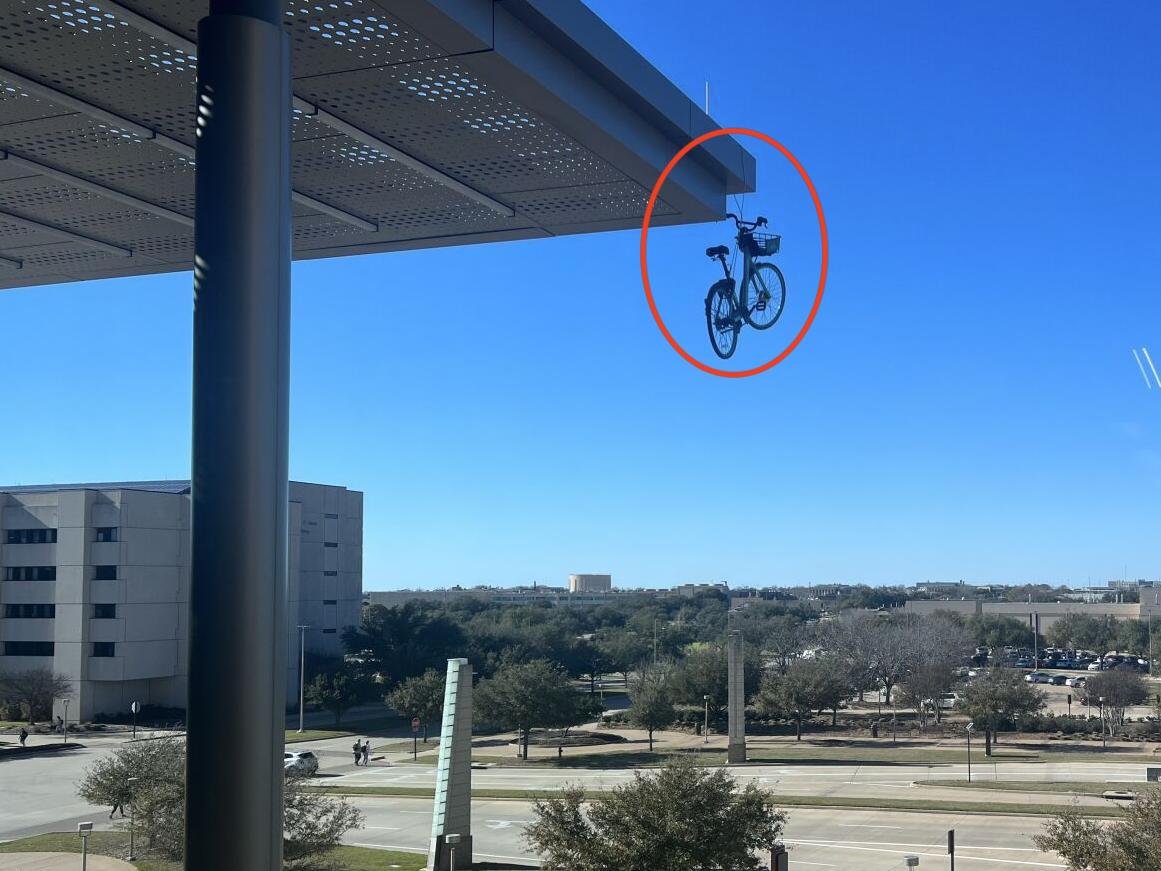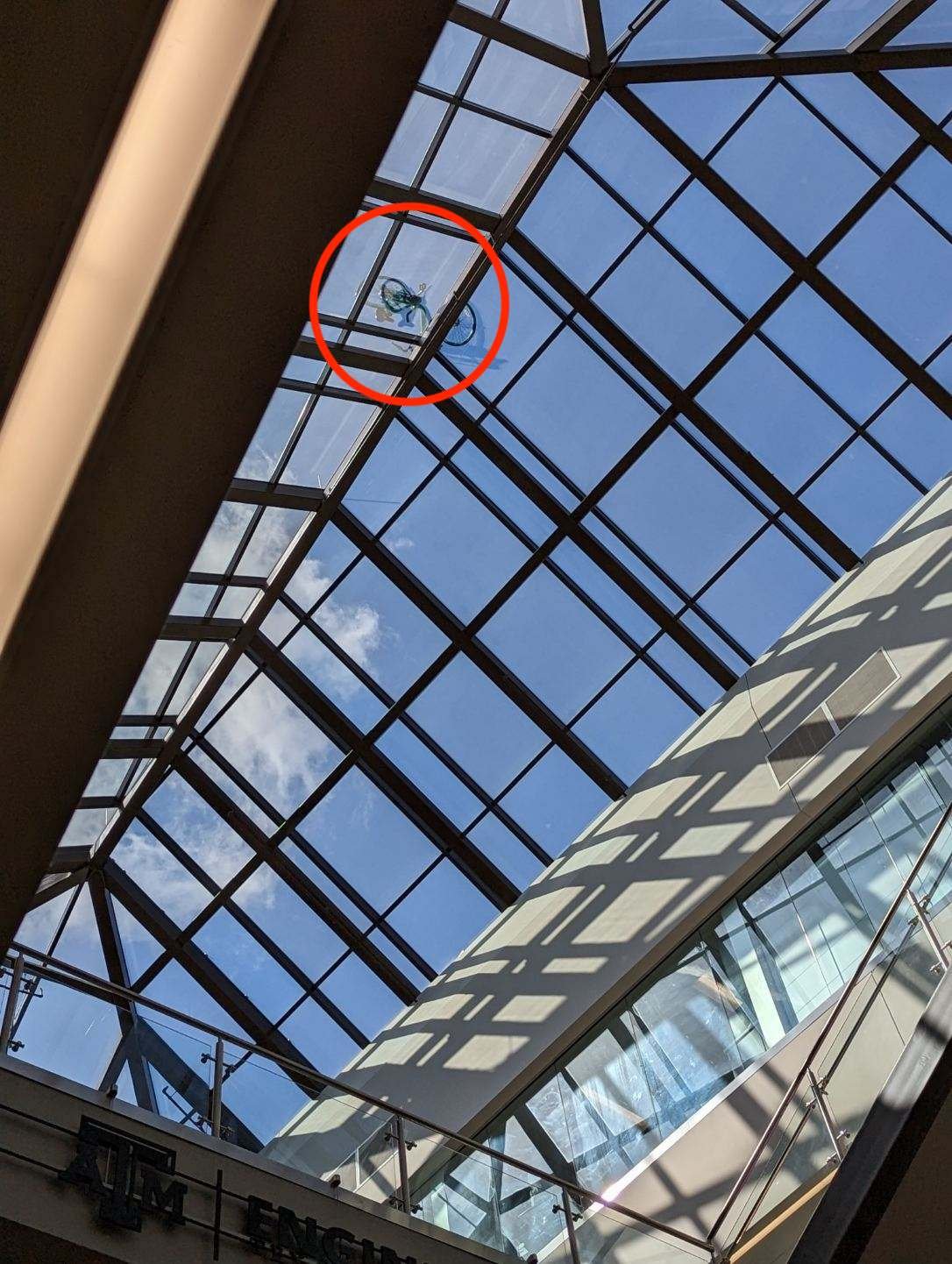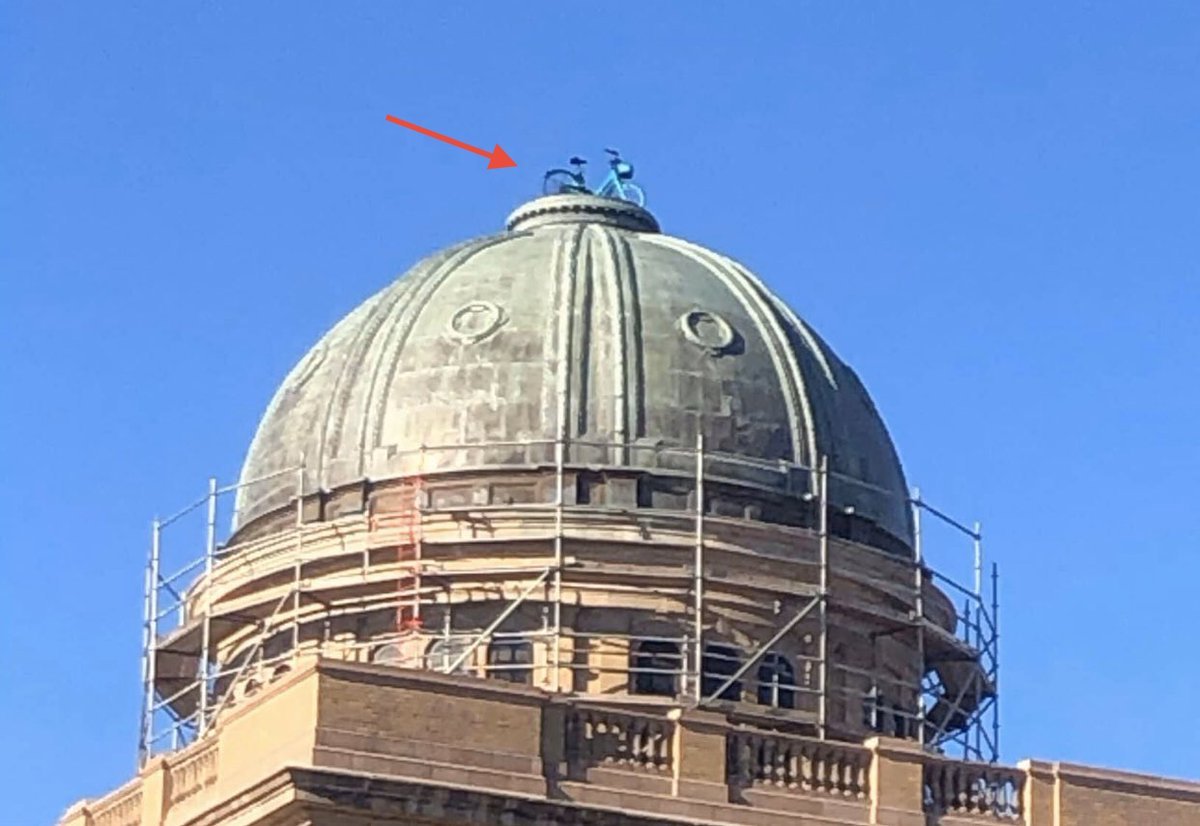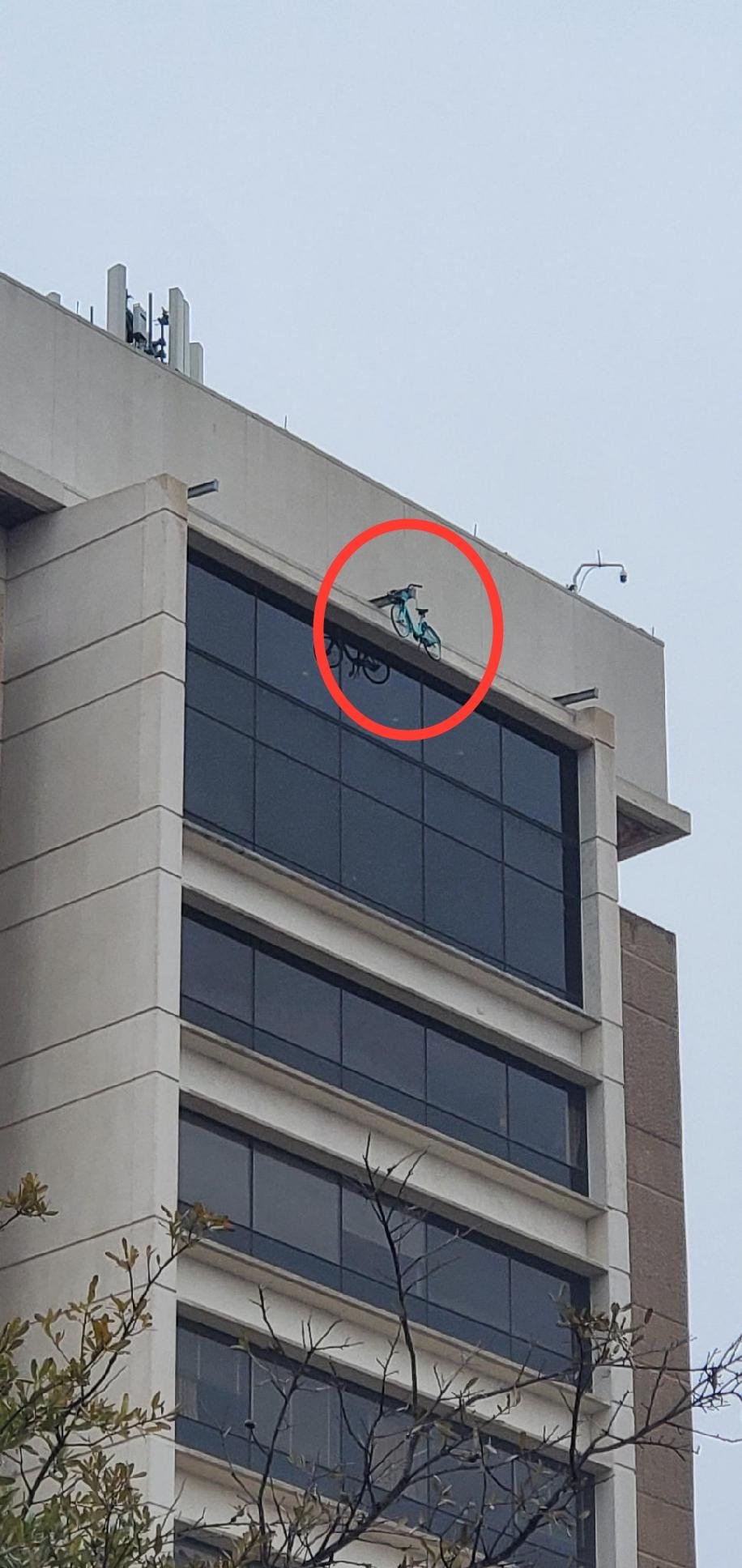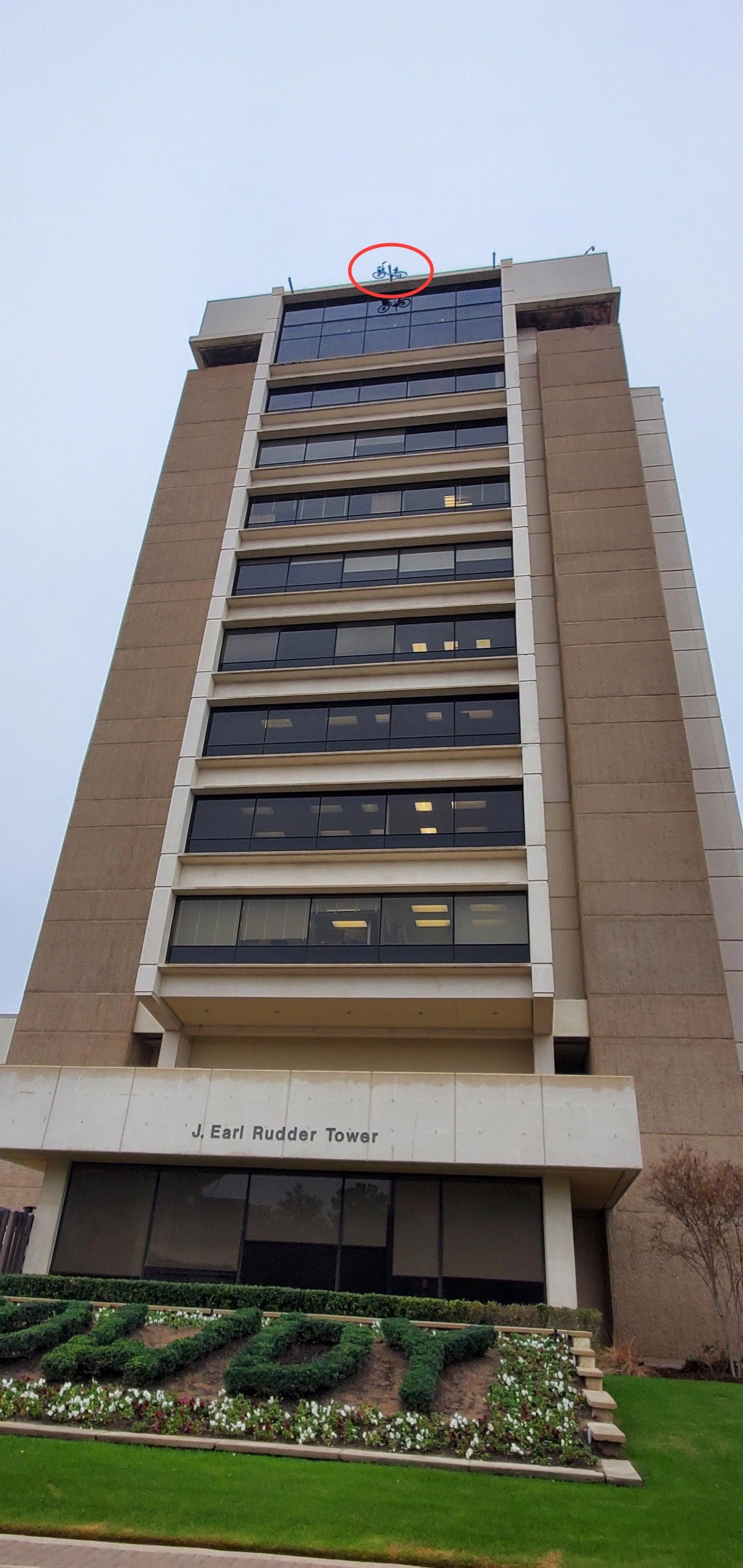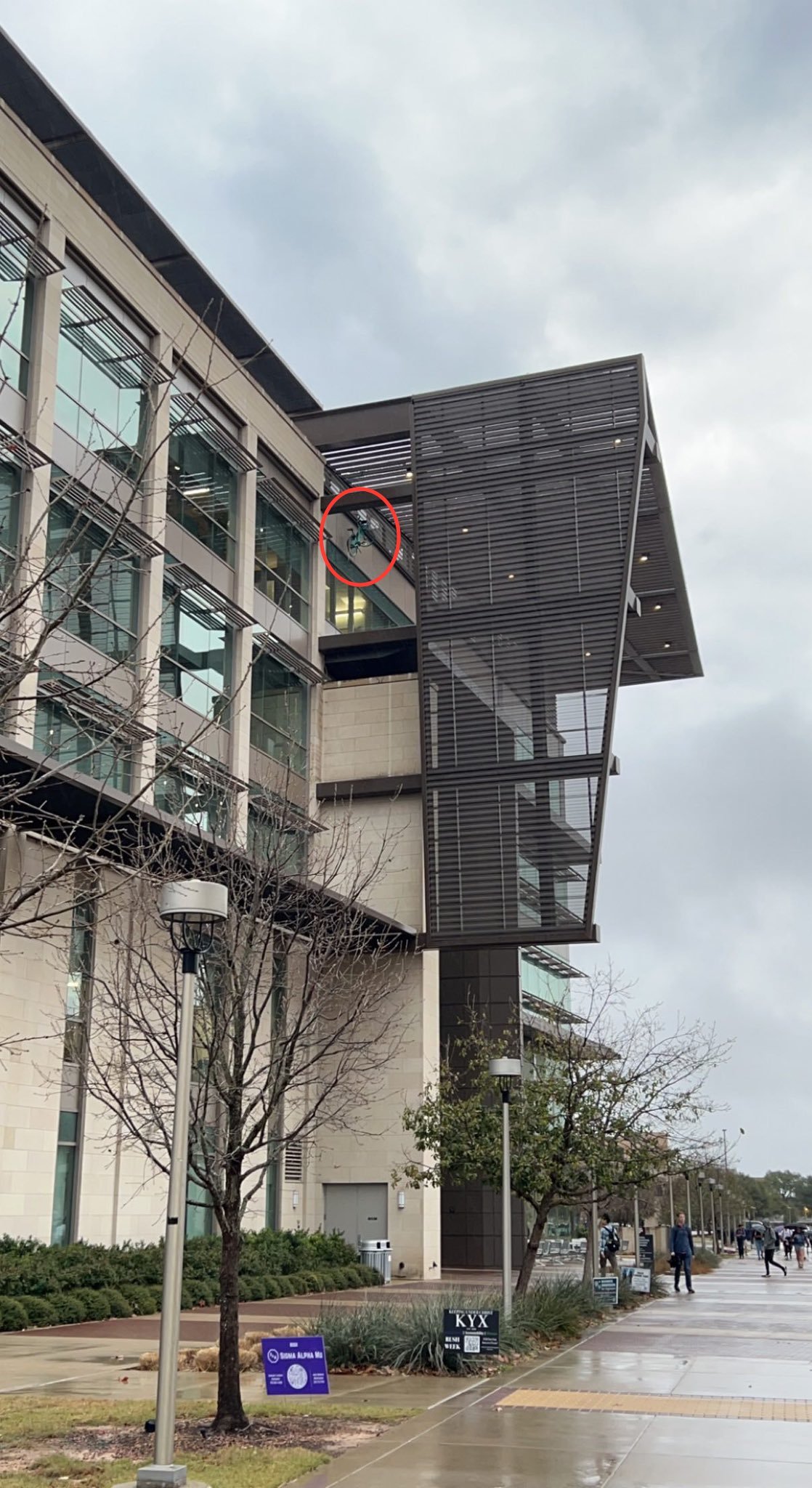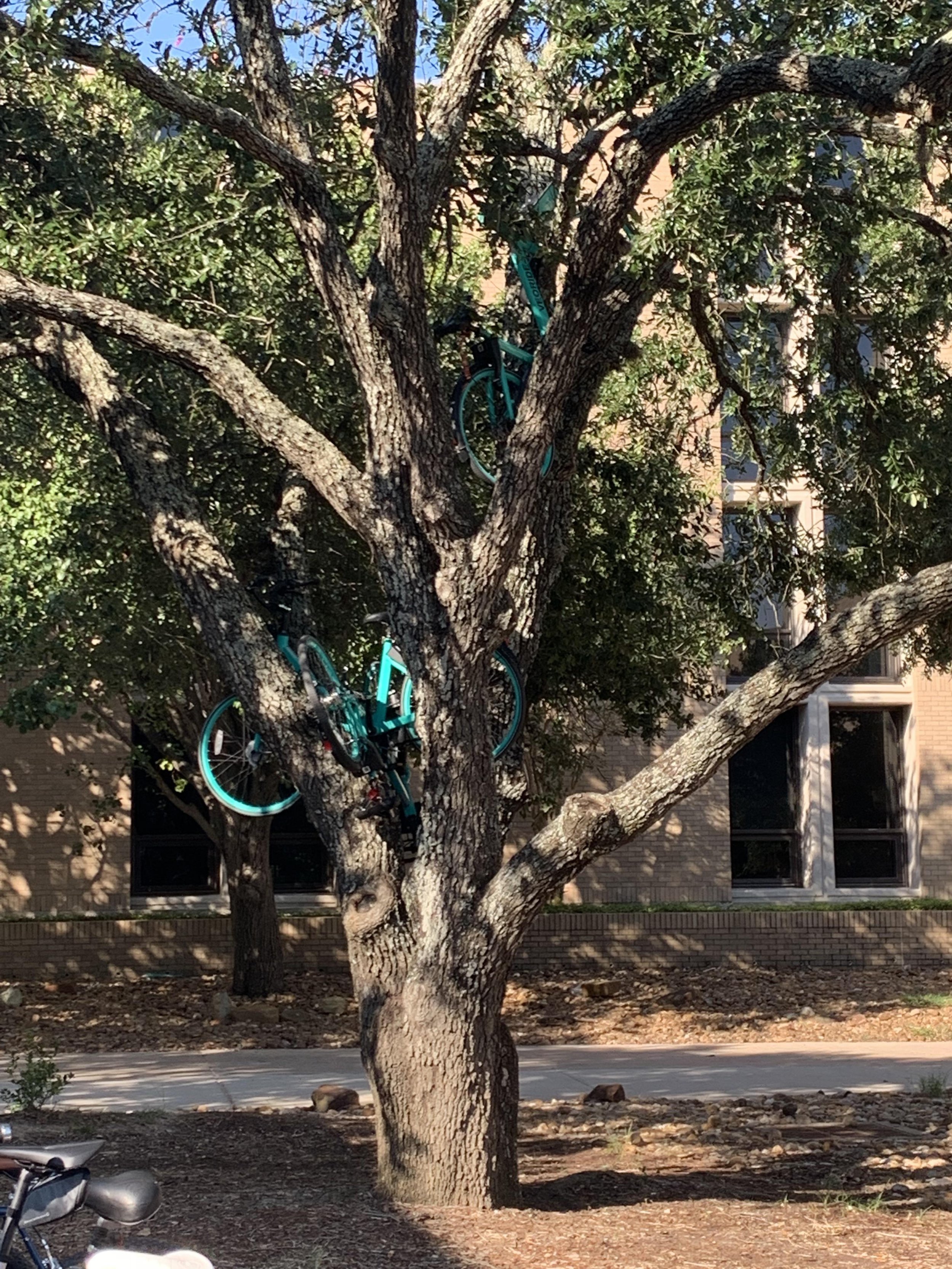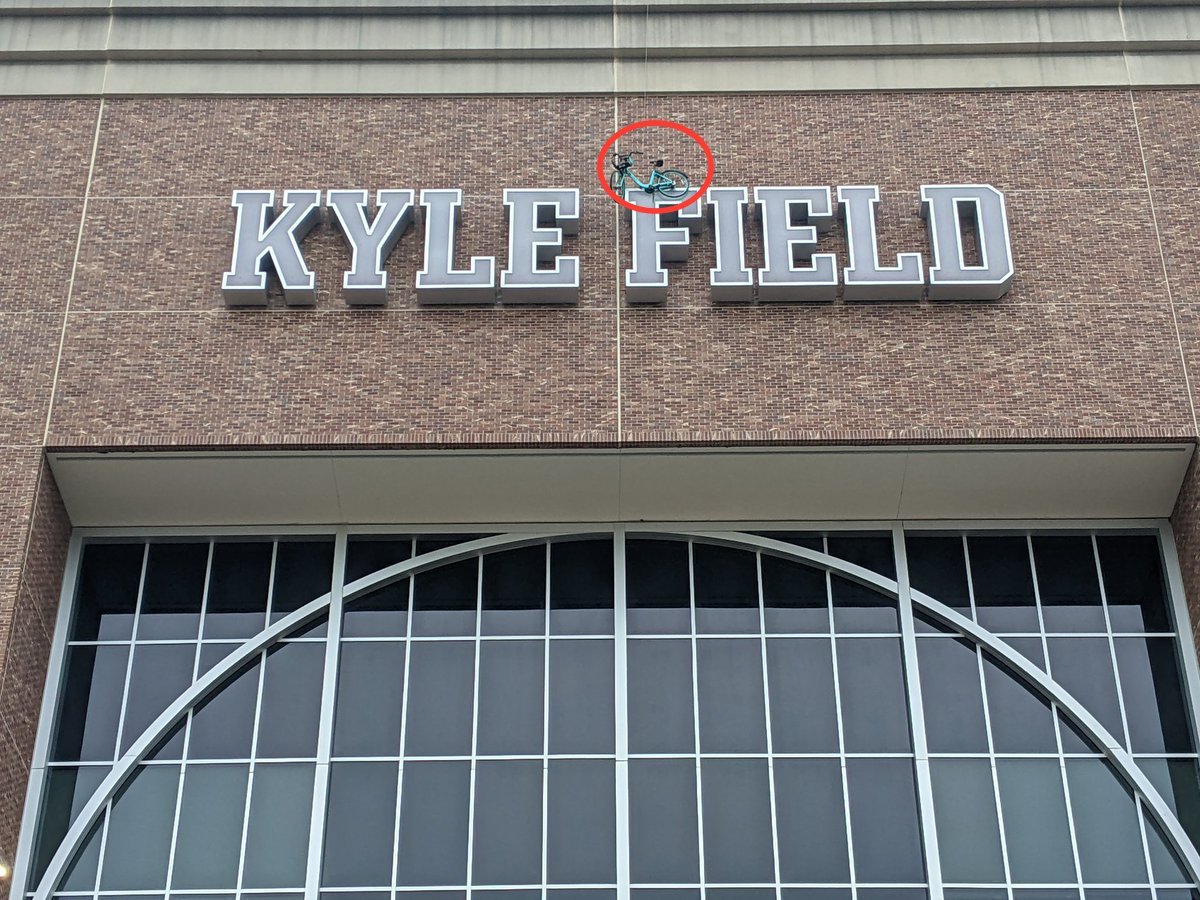Reaching New Heights
It’s 5:42 p.m., Feb. 16, 2023. Tens of thousands of inboxes around the city of College Station, Texas, light up with an email notification. Brigadier General Joe E. Ramirez Jr., the Vice President of Student Affairs at Texas A&M University, has a message for the student body. Apparently, there have been some “pranks” involving “placing bikes on buildings” that are “putting us all at risk”.
The practice of forcefully relocating rental bikes owned by the Chicago-based “VeoRide” is no novel activity to the A&M campus. Since the contract began in the spring semester of 2019, the turquoise bikes have seen their fair share of abuse at the hands of the student body. Public interest was first sparked with the placement of a Veo Halo pedal bike on top of the Academic Building, likely accessed by way of scaffolding situated around the building in Oct. of 2019. This event led to major backlash on the behalf of the student body, with campus administration threatening to end their contract with Veo as a result of the misconduct.
Alas, the threats were, as they most often are, no more than that, and Veo has remained the dominant life form on the TAMU campus to this day. However, as most students know, there seems to have been further developments. It started small. Someone would get up to attend their 8 a.m. morning lecture, and find a Veo 6 or 8 feet up in a tree. How did that get there? Who’s doing that? A week later, it’s 10 to 12 feet in a tree. A week after that, 15. It seemed that new Veos were spawning in trees around campus faster than administrators could get them taken down. The stunts were ultimately harmless, if not entertaining, but only grew to become more elaborate. Veos would be found 20 feet or higher in trees, on top of awnings outside of buildings, sometimes incorporating multiple Veos within one stunt, in spots that clearly took some degree of planning and surely several people. This is the moment that the art of Veo vandalism was born. Misplacing Veos was no longer a spur-of-the-moment joke to see it posted on Snapchat the next morning. People began to care.
The images shown above are almost surreal. It is unfathomable how anyone could reach many of these spots, let alone with a bike. The only answer more desired than how, is why. Why would anyone do this? This takes planning, and effort, and it’s dangerous, from both a disciplinary and injury standpoint. It isn’t for any sort of fame or glory. If done right, nobody will ever know who put these Veos in such fascinating locations. If not for fame, nor clout, surely there is some reason that outweighs the absurd risk involved in these stunts, right?
Not all students have been fans of Veoride for their time on the A&M campus. While many people praise the addition of these bikes as offering more transportation options to students at an affordable price and allowing students a flexible way to travel between classes, or a quick scoot across campus if running late, that is not all that is said about Veoride. An important differentiation to make when discussing the bikes is that they are in no way a “transportation program.” The purpose of Veos on our campus is not, nor has it ever been, to allow students an easier form of transportation. Veoride is a business with a permit to operate at Texas A&M, and its objective is to make a profit. With that being said, a common complaint about the presence of Veos is the omnipresence of Veos. Even if some of the blue scooters are a good thing, there can always be too much of a good thing, and many believe there to be far too many Veos. The 2,500 bikes and scooters crowd the streets, they crowd the sidewalks, and they take up room on bike racks that could be used for personal bikes. In fact, the administration even added bike racks to handle the influx of new scooters. As opposed to the “coat hanger” bike racks most common around campus, there are additional racks, a level above metal bars, referred to as “shared mobility hitching posts” designed specifically to fit Veo scooters. They are seldom used, as the uncomfortable design lacks support for most personal bikes, and most Veos are shoved into the more popular bike racks anyways. For these reasons and many more, some students have grown to resent the scooters of our campus, a select few enough to make a statement about it.
At some point in the duration of Veo’s stay on the A&M campus, a feature was implemented to fine customers for not putting their bikes back properly. These fines could run as high as $75. I like to think of these Veo vandalists as dissatisfied customers, students who are not happy with the transportation efforts made by Texas A&M. Maybe some people have decided to not put their bikes back on the rack. Instead, people have decided to leave their bikes as far away from bike racks as possible, and with the thousands of bike racks that A&M claims to have, it seems that the only way to do that is by going up. In his email, Ramirez reminds us to “uphold our Core Values”, including, “selfless service in all that we do.” To that I say, this new Veo artwork is a selfless service to all students at our great university. Gig ‘Em.
Written by Nathan Brooks, Design: Izzy Davis, Social Media: Emma McMinn

